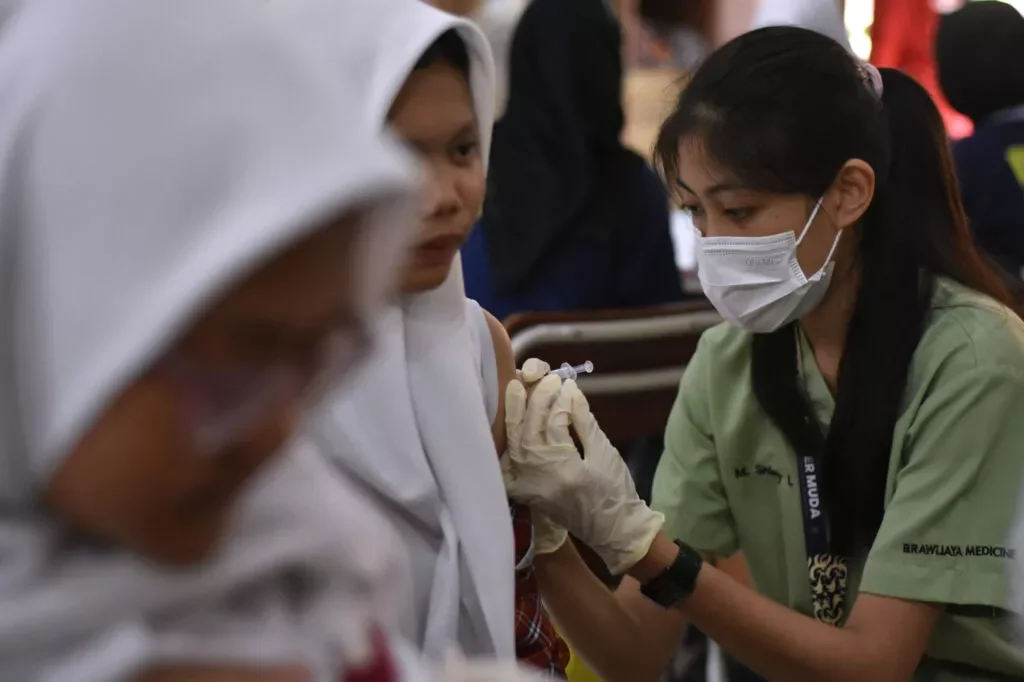Indonesia Has Vaccine Capacity but Needs More Support
Vaccination to prevent cervical cancer at a school in Malang, Indonesia | Aman Rochman / Imago
In an article by East Asia Forum, Mutiara Indriani asserts that Indonesia needs sustained international support to strengthen local research, production and regulatory systems to prepare itself for future pandemics.
The historic adoption of the WHO Pandemic Agreement on 20 May 2025 has been called a once-in-a-generation opportunity to create a fairer and safer global response to the next health emergency. But can this global deal actually help Indonesia get vaccines faster when the next pandemic strikes?
The landmark agreement aims to promote global solidarity, especially by improving access to vaccines, medicines and test kits globally. The agreement is a response to events during COVID-19, where many lower-income countries were left waiting for life-saving vaccines, while wealthier nations secured most of the supply.
Indonesia has long played an active role in global health diplomacy. This role was recently spotlighted during its G20 presidency, where it led the launch of the Pandemic Fund — mobilising US$6 billion to bolster pandemic preparedness and response. During the H5N1 bird flu outbreak, Indonesia adopted a strategy of ‘deadlock diplomacy’, withholding virus samples until it was given guarantees that developing countries would get access to the vaccines developed from those samples. As then health minister Siti Fadilah Supari told TIME in 2007, ‘unfair access to vaccines worsens the global inequality … and I think that is more dangerous than a pandemic’.
That diplomatic stand led to the creation of the Pandemic Influenza Preparedness (PIP) Framework. This included legally binding agreements to ensure countries sharing virus samples would also share the benefits, including access to vaccines. But when COVID-19 hit, the PIP Framework wasn’t enough to ensure equitable access. That’s why the new Pandemic Agreement includes plans to negotiate a system for sharing pathogens and the benefits that come from them, a process known as ‘Pathogen Access and Benefit Sharing’ (PABS).

